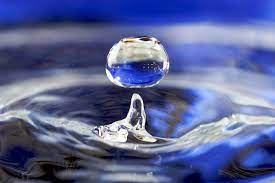Bodies of water affect climate in many ways, but perhaps the most significant impact is based on the fact that large bodies of water act as heat sinks. In other words, large bodies of water tend to store heat in warm periods and release it in cold periods.
This is because the thermal capacity of water is high, which means it takes a lot of energy to change the temperature of water. So, during the summer, land areas near a large body of water may not heat up as much as areas that are not close to water, because the water itself is absorbing much of the heat energy.
This will cause the climate to be more moderate in summer near the coast. Likewise in winter, the water near the coast will slowly release this energy, causing coastal areas to be less cold, in general, than inland areas. So, in summary, large bodies of water tend to moderate temperatures in both summer and winter in nearby land areas, compared to areas that are further inland.
There are many other ways that bodies of water affect climate, such as warm or cold temperature currents. The Gulf stream, for example, a warm current, tends to keep the east coast of the US warmer than it otherwise would be, because it flows from the warm Gulf of Mexico past Florida and up along the east coast.

In summary, in order to understand water as a resource, we must understand its basic properties and its role in the biosphere. As has been revealed from the above discussions, water is a unique liquid; without it, life as we know it is impossible.
Read Also : Water as a Universal Solvent and Source of Energy
Compared with most other common liquids, water has a high capacity to absorb or store heat and it’s a good liquid solvent. Because many natural waters are slightly acidic they can dissolve a great variety of compounds.
In addition, water can exist in three different states – liquid, solid and gas; it also has a moderating effluence on climate and a good source of energy.
Two atoms of hydrogen (positive) and one of oxygen (negative) which readily bond compose a water molecule. The molecules are attracted to each other because of their polarity. The bonding between water molecules is called hydrogen bonding.
Water can exist in three states-solid, liquid and gas. A change of state from one form to another requires the input of heat energy called latent heat.
Water is a universal solvent because it is needed by all biological lives. It is a non- ionic polar molecule, which dissolves anything similar to it.
Evaporation of water is one of the major sources through which the atmosphere gets its energy. Water is also a source of hydroelectric energy.
Water has a moderating influence on climate, as large bodies of water act as heat sinks (its ability to store heat in warm periods and release it in cold periods).

